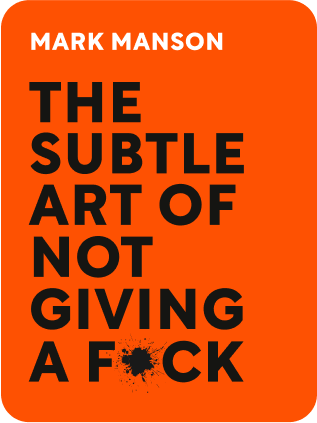

This article is an excerpt from the Shortform book guide to "The Subtle Art of Not Giving a F*ck" by Mark Manson. Shortform has the world's best summaries and analyses of books you should be reading.
Like this article? Sign up for a free trial here .
Why is failure such an important part of success? How can reaching rock-bottom be a good thing?
Failure is a part of success and the more you fail, the greater your success will be. Mark Manson, author of The Subtle Art of Not Giving a F*ck, reached rock-bottom and it forced him to get creative and come up with his own means of success.
Keep reading to learn why failure is an integral part of success.
Success Starts With Failure
Most people are reluctant to fail or to admit failure. But to succeed at something you first have to fail, usually multiple times, because failure is a part of success.
Improvement at anything is a result of many small failures. The more you’ve failed, the greater the scope of your success will be. Someone who is better at something than you are probably failed at it more times.
Children fall repeatedly when they are learning to walk, but they don’t give up on walking after failing a few times — they keep trying until they succeed.
We don’t start trying to avoid failure until later in life, when we internalize messages that failure is bad, from the education system and overly critical parents. A focus by the media on extraordinary success, but not on the challenges leading up to it, also distorts our beliefs about success. If you want to be successful at something you have to be willing to fail at it.
Besides offering a chance to learn, failure is an opportunity to rethink our values and standards.
- When author Mark Manson graduated from college during the Great Recession, job prospects were slim, and he lost his apartment. He started adult life as a failure by the usual standards of finding a job and a place to live, and paying your bills. But this put him in a position to rethink his values and standards.
- His value became autonomy instead of making money. Freed from the fear of failure because he was starting at rock bottom and couldn’t go lower, he started his own internet-based business, which eventually succeeded.
Change Your Idea of Failure
Much of our fear of failure stems from having warped values. For example, if your value is to make everyone like you, you’ll feel insecure and fear failing because others will determine whether you succeed. A more constructive value would be to build good relations with others, which isn’t dependent on the actions of others.
Growth makes us happier than checking off a list of accomplishments, such as graduating from college, getting a promotion, or buying a house. These kinds of short-term achievements generate a limited amount of satisfaction — once you achieve them, they don’t keep making you happier and happier.
However, constructive values — for instance, being honest with others — involve an ongoing process that’s never completed and that continues to provide satisfaction. For example, Pablo Picasso continued to be a prolific artist throughout his life. Had his value been to make a lot of money and be famous, he’d have retired to enjoy the fruits of his success. But his value was continuous learning and improvement — and that kept him going for decades.

———End of Preview———
Like what you just read? Read the rest of the world's best book summary and analysis of Mark Manson's "The Subtle Art of Not Giving a F*ck" at Shortform .
Here's what you'll find in our full The Subtle Art of Not Giving a F*ck summary :
- How to clarify what's important to you (and not just what you think should be important)
- Why it's okay for things to not always go well in life
- Why you need to care about fewer things






